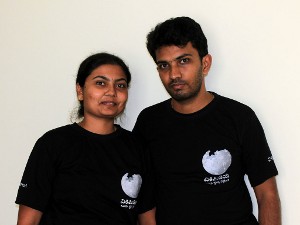Vachana sahitya is a form of rhythmic writing in Kannada poetry that evolved in the 11th century C.E. and flourished in the 12th century as a part of the Lingayatha movement. More than 259 Vachanakaras (Vachana writers) have compiled over 11,000 vachanas. 21,000 of these verses which were published in a 15 volume set, “Samagra Vachana Samputa,” by the Government of Karnataka, a state in South West India, have been digitized. Two Wikimedians along with Kannada linguist and author O. L. Nagabhushana Swamy are involved in the Unicode conversions, corrections and writing the preface for these verses. The entire work is now available as a standalone project called Vachana Sanchaya and ready to enrich Kannada WikiSource.

This project was started a year ago when Kannada Wikimedian Omshivaprakash was trying to help Professor O. L. Naghabhushana Swamy and Kannada author and publisher Vasudhendra to easily access the vachana (verses) of Vachana Sanchaya. Swamy had challenges in using publicly available content on Vachanas since the data was in ASCII and searching text was a huge problem. Pavithra Hanchagaiah started helping to collect information about about vachanas and document them into Unicode by writing scripts to customize open source software to convert the Kannada fonts from ASCII into Unicode.







